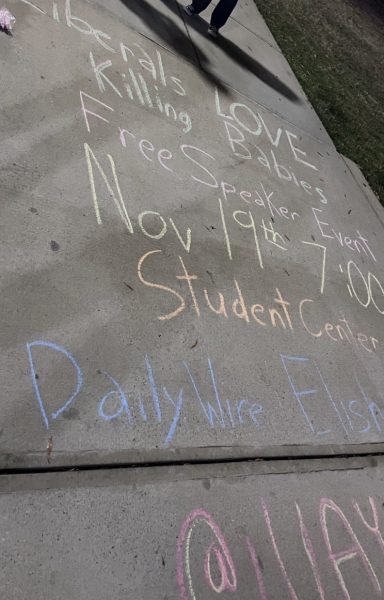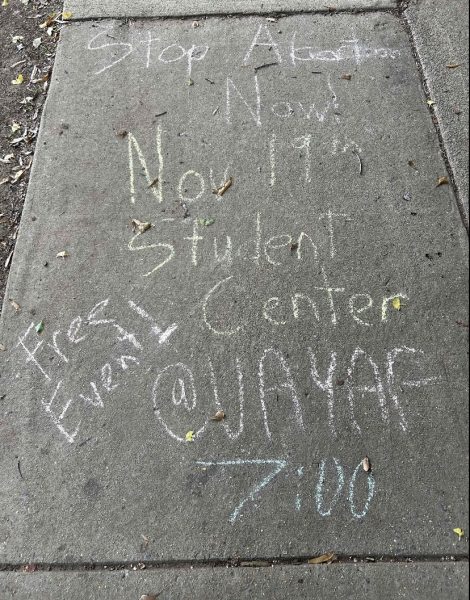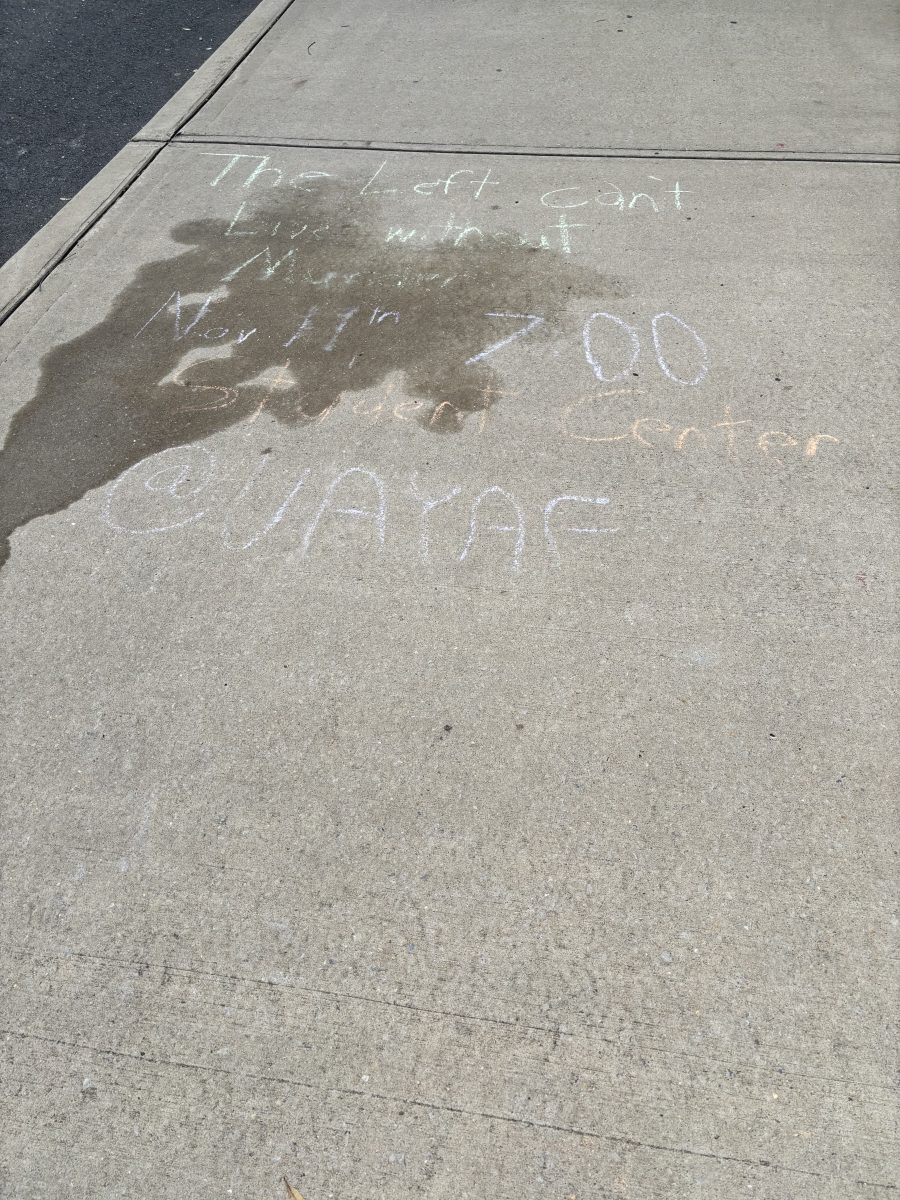The UA Young Americans for Freedom Chapter promoted an anti-abortion lecture led by a speaker from The Daily Wire planned for Tuesday by chalking campus sidewalks. Student reactions varied from pouring water over the writings to simply glancing and then moving on.
Examples of some of the messages that sparked controversy are “Liberals LOVE Killing Babies” and “The Left can’t Live without Murder.”

It’s not unusual to see chalkings on the University sidewalks with inspirational or religious quotes, but some students said hateful messages can have an impact on passersby.
“If you’re already having a bad day and then you read something hateful towards you or your demographic, then that’s just going to be horrible,” said Ella Gunnells, a sophomore majoring in interior design. “It can make your day so much worse.”
She said that by contrast, seeing chalkings of Bible verses on the way to class gives her a sense of encouragement.
This is not the first time controversial messages have been written across campus. Antisemitic “#YEisRight” chalkings were sprawled over campus one day prior to Holocaust Remembrance Day in 2023, and YAF has chalked messages to the University including “protect real women” and “men can’t be women” to promote their event with political commentator Vince Everett Ellison, who spoke against “transgenderism.”
Trenton Buffenbarger, a junior majoring in political science and UA YAF president, said that some of the messages the organization writes are meant to elicit reactions, and he disapproved of people attempting to erase their messages.
“We all went to seventh grade English class. We all know what a hook is,” Buffenbarger said. “Sometimes, our titles for our events or our chalkings are a little bit over the top, but it’s meant to draw attention.”
He also said that YAF submitted videos of students pouring water over their chalkings to the University’s Grounds Use Permit Department, which is responsible for upholding the grounds use policy, including chalking regulations.
“I feel like it’s a violation of free speech. It’s trying to muffle or censor, even intimidate,” Buffenbarger said.
The University’s facility and grounds use policy states that “overwriting, erasing, defacing, or altering existing chalking is prohibited by anyone other than the person or organization that made the chalking or University facility and grounds personnel.”
Emily Brewer, a junior majoring in social work, believes that students should be able to erase writings they deem unnecessary and that the University should impose restrictions on the content.
“They need to put a limit on what people can write,” Brewer said. “If somebody draws a hate symbol or a slur or something, people should be able to wash it off. Nobody needs to be walking to campus and seeing that.”
Currently, the facility and ground use policy only strictly prohibits commercial advertisements or promotions. All other messages written in chalk are allowable as long as they do not “violate any federal or state law, the University of Alabama Code of Student Conduct, or any other University Policy.”

Teneshia Arnold, director of student involvement, said although the Grounds Use Permit Department is responsible for enforcing the grounds use policy, people often send pictures of messages they found offensive to her office.
“Regardless of the content, Student Involvement is not in the position to tell students that they can’t chalk on the ground unless they are not abiding by policy,” Arnold said. “Students have the right to chalk freely.”
She also said that her office reiterated University policy to students and student organizations who filed complaints.
“We try to make sure that we connect students with resources to help them process through the messaging that they’re seeing on campus,” she said.
Arnold’s department does not condone the erasure of chalkings and urges students to hold conversations about their feelings to process the messages with Student Involvement or other campus resources like Student Care and Well-Being, the Counseling Center or the Women and Gender Resource Center.
Although students are prohibited from erasing offensive messaging, Arnold reminds students often that they have a right to respond in other ways, either by counter-chalking or organizing events.
“We remind students of the power that they have in their voice and how they can activate it,” Arnold said.









